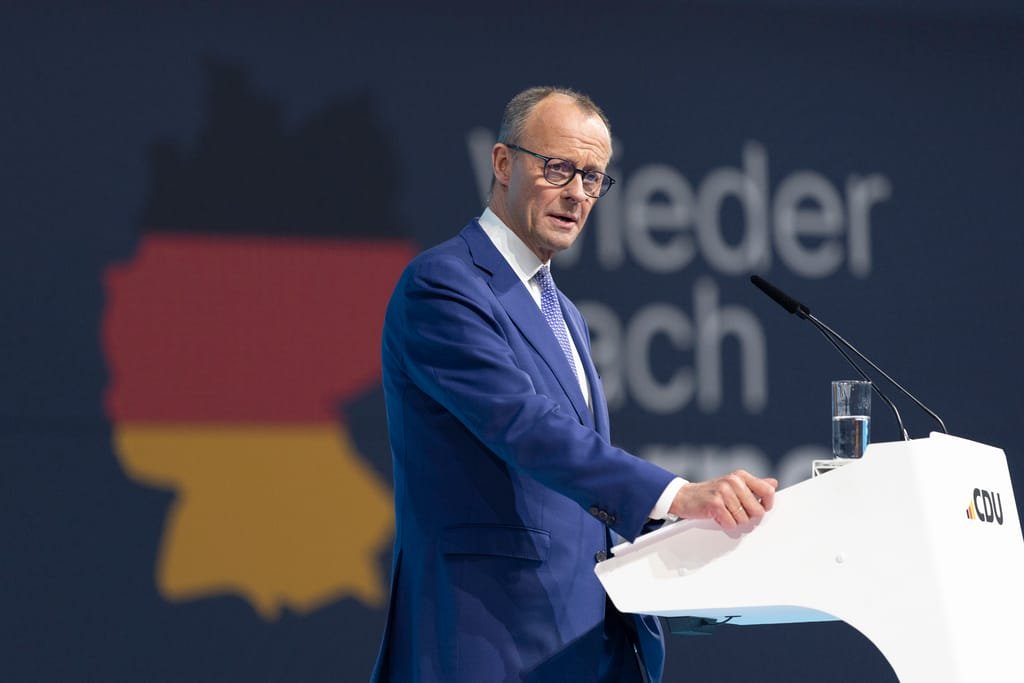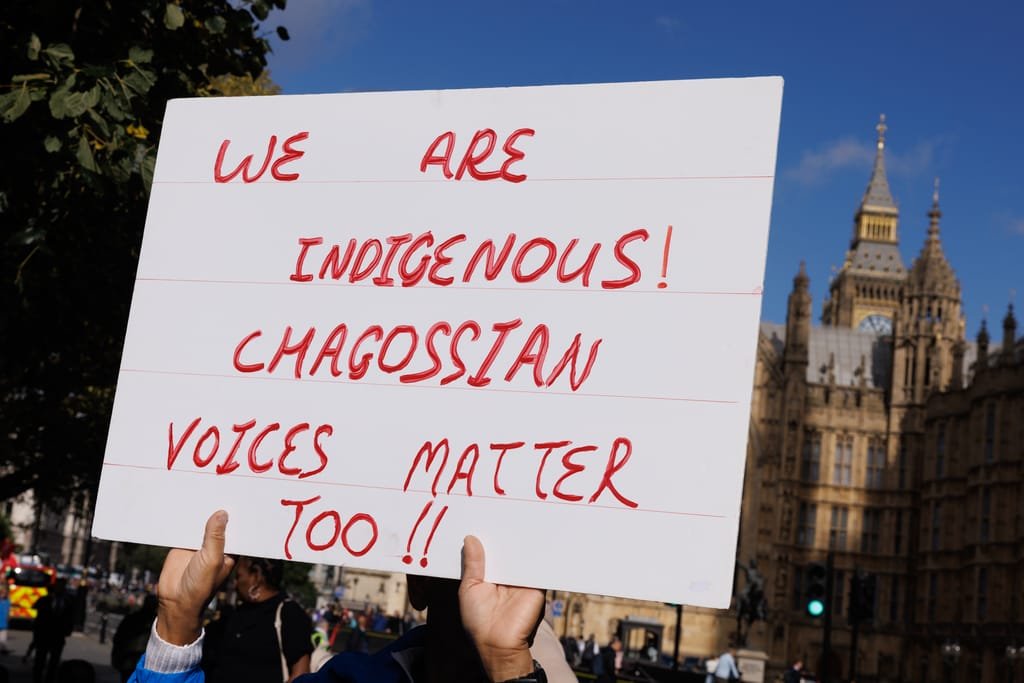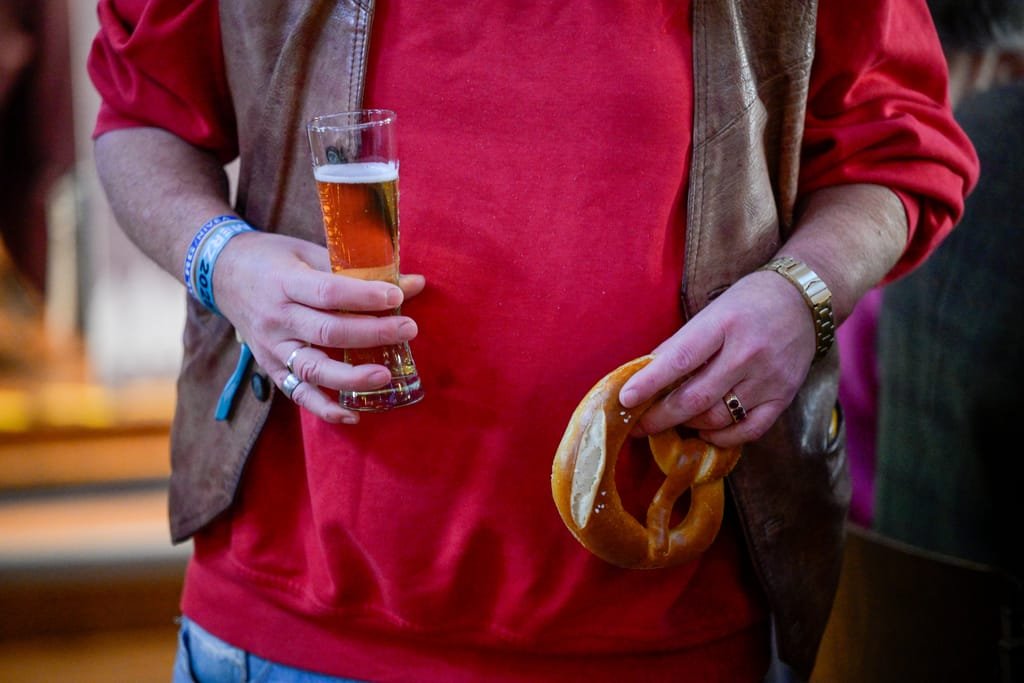Germany’s conservatives are desperate to avoid a three-party coalition, but the outcome depends on how many small parties make it into parliament.

BERLIN — The question is not who will be Germany’s next chancellor, but rather which of his rivals he’ll govern with.
So while we’re fairly sure Friedrich Merz’s conservatives will be in charge — the outcome seems almost nailed on according to the polls — that’s just where the story begins, as the design of Germany’s political system means a coalition of parties is almost inevitable.
And while the overall winner of the Feb. 23 election looks boringly predictable, the makeup of the coalition is still very much up in the air.
Merz’s center-right alliance — the Christian Democratic Union and its Bavarian sister party, the Christian Social Union — is currently polling at around 30 percent, well ahead of all other parties. The center-left Social Democratic Party and the Greens are expected to finish at around 16 percent and 13 percent, respectively.
In second place, at just over 20 percent, is the far-right Alternative for Germany (AfD). But all other parties have ruled out working with them in a coalition.
According to politicians from Merz’s party, their least-favored outcome would be a three-way coalition because of the infighting that would inevitably follow. A tempestuous alliance would echo the problems that beset the last government — led by the SPD with the liberal Free Democrats (FDP) and the Greens — whose December collapse led to this snap election.
As with all the possible scenarios listed below, much depends on the share of the vote each party gets relative to the others. And it’s all to play for.
If center right and center left have a good election: GroKo
The große Koalition — “grand coalition,” or GroKo for short — is one of Germany’s classic government constellations, consisting of the conservatives and the SPD. Germany has been governed four times by a GroKo since 1949, three under former Chancellor Angela Merkel.
The conservatives, however, have shifted significantly to the right under Merz, rendering future compromises with the center left more challenging.
“It will not be easy after the election,” Merz said this week, leaving open whether he’d prefer to work with the SPD or the Greens.

He then named a man who, he said, had “impressively shown” how to negotiate: Boris Rhein, the incumbent state premier of Hesse and a member of Merz’s CDU.
After winning the 2023 regional election, Rhein played the SPD and the Greens off against each other. He eventually plumped for working with the SPD, which were said to be the more pliable and conciliatory partner.
Merz has in recent weeks often referred to Hesse as a blueprint. On the national level, too, the SPD is expected to be more flexible — especially when it comes to cracking down on migration, a key promise by Merz.
Postelection rapprochement is, however, likely to lead to a reshuffle within the SPD. While incumbent Chancellor Olaf Scholz has already ruled out serving in a Cabinet under Merz, Defense Minister Boris Pistorius and party leader Lars Klingbeil, both centrist figures within the SPD, are expected to step up.
If Greens do well and others not so much: Kiwi
Three of Germany’s 16 states are currently ruled by a coalition of the conservatives and the Greens — sometimes referred to as a Kiwi coalition — but such an alliance would be a novelty on the national level.
Policy-wise there’s overlap on foreign policy and defense spending, with both parties criticizing Scholz for being indecisive in his support for Ukraine. But there’s wide variation in their positioning on migration, with Merz vowing to close Germany’s borders on the first day of his tenure and the Greens considering such plans illegal.
That rift deepened last week as Merz declared his willingness to push through parliamentary proposals restricting migration even with support from the AfD, a move that weakened Germany’s so-called firewall against the far right and sparked a fierce preelection debate that struck at the heart of the country’s postwar identity.
What’s more, Markus Söder, the charismatic and outspoken leader of the Bavarian conservatives, has long ruled out a coalition with the Greens.
The party is therefore expected to serve mainly as leverage for the conservatives in their negotiations with the SPD.
If smaller parties do well: Tripartite
Although postwar Germany hasn’t had much experience of coalitions of more than two parties (Scholz’s fallen post-2021 triad was the first three-way alliance in over six decades), political fragmentation and the end of the traditional two-party dominance may make such arrangements the new norm.
In fact, a tripartite alliance could be hard to avoid if two of the three smaller parties currently sitting in the parliament ― the Greens, the FDP and The Left ― reenter it.
In that case, the most likely options are either:
The thought across the parties is that such a scenario — which might nevertheless be necessary —is highly undesirable because the sharp divisions among them would predispose the next government to be just as quarrelsome as the last one.





